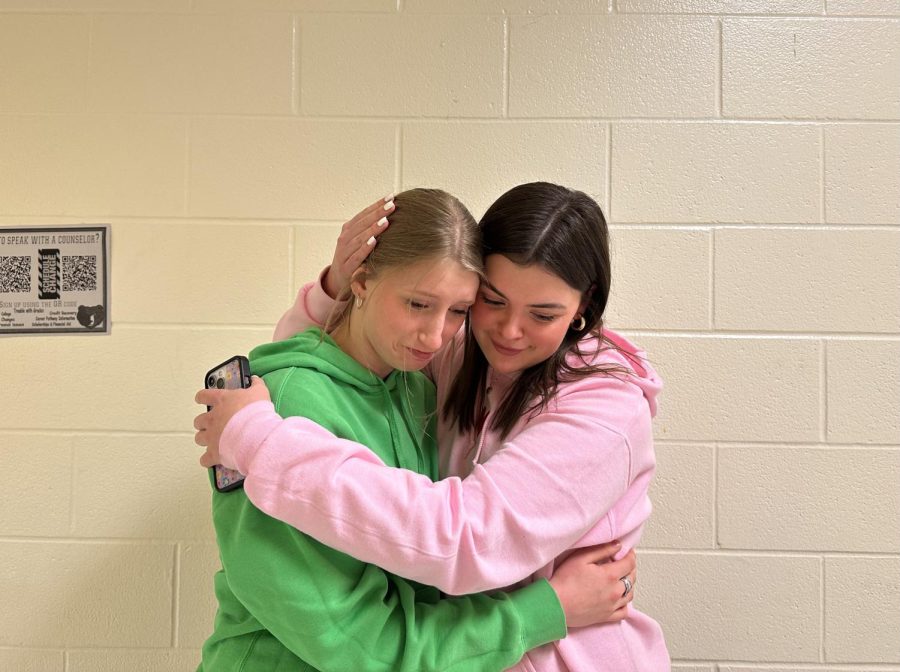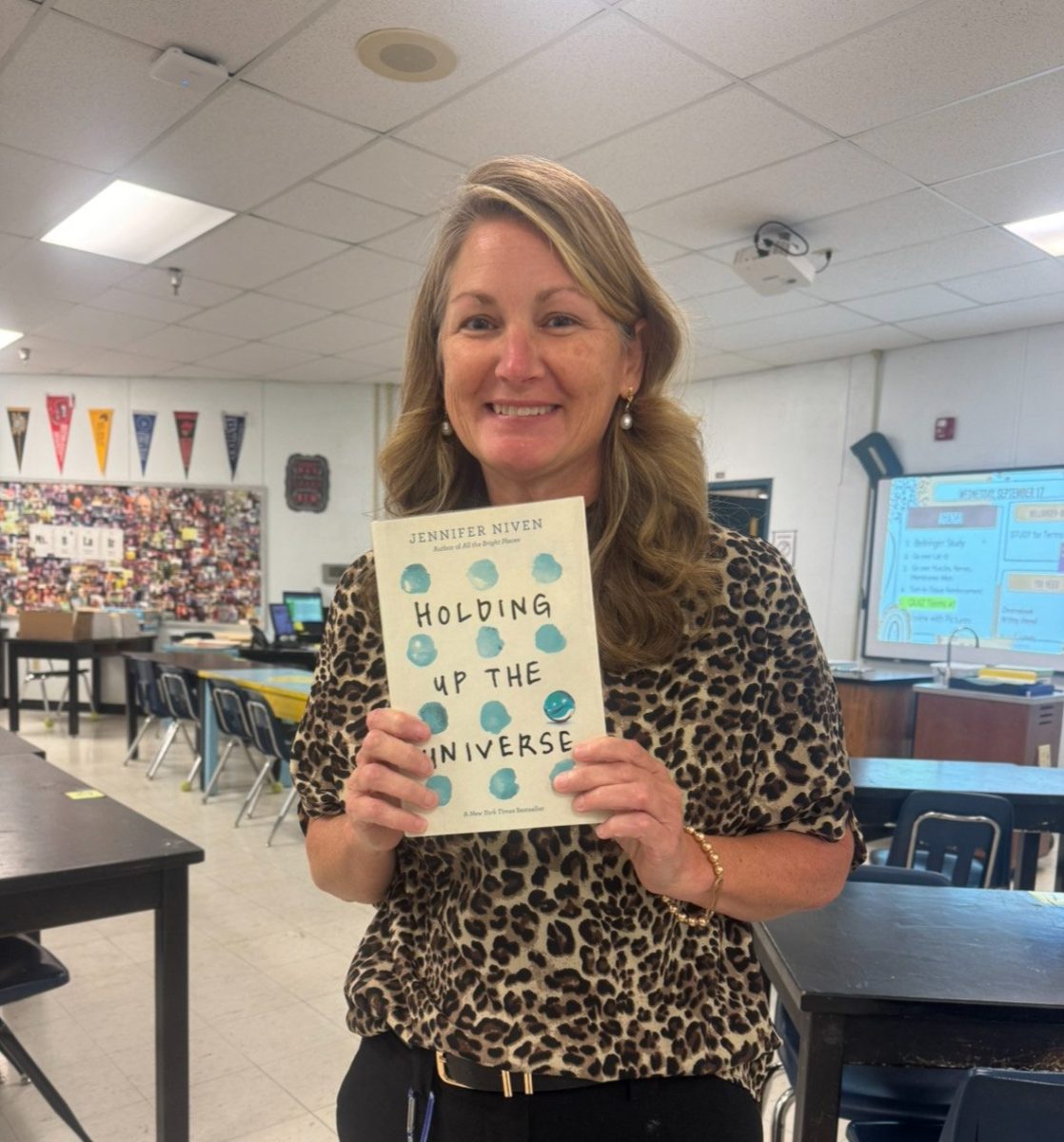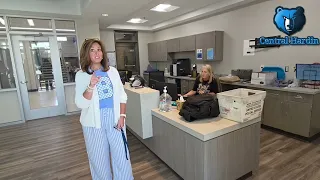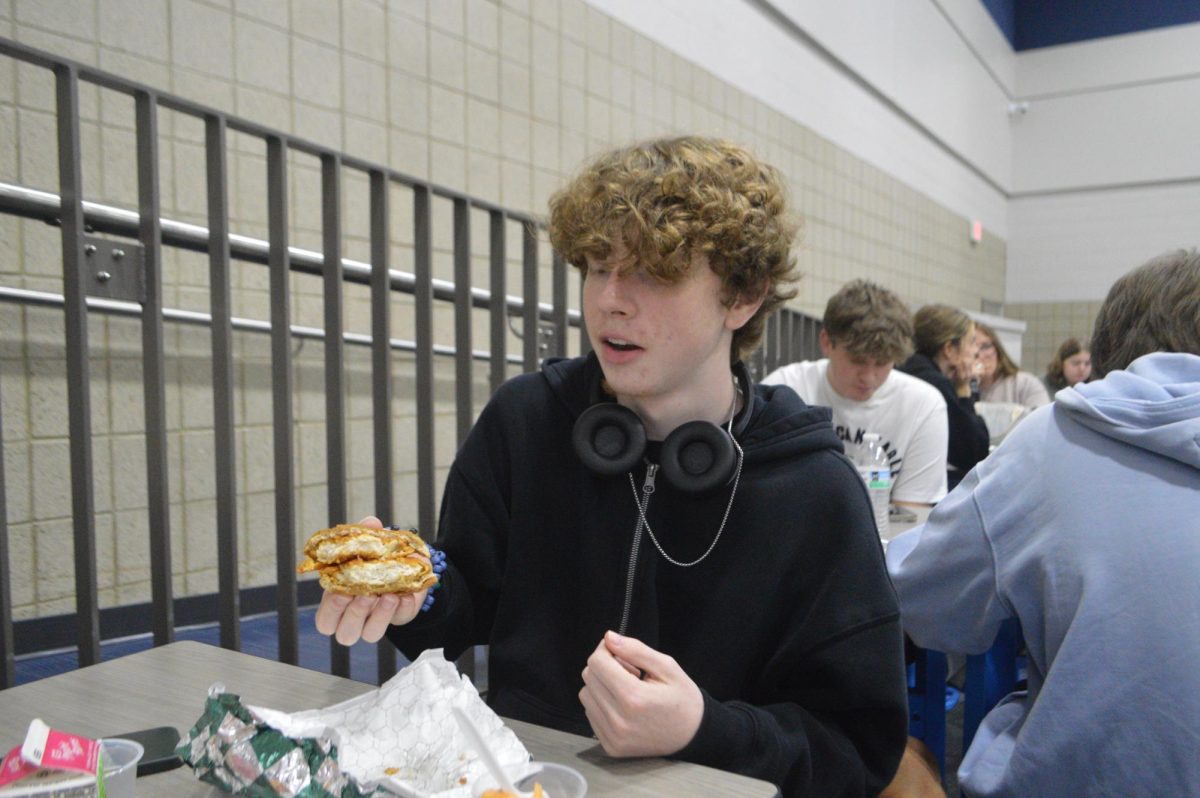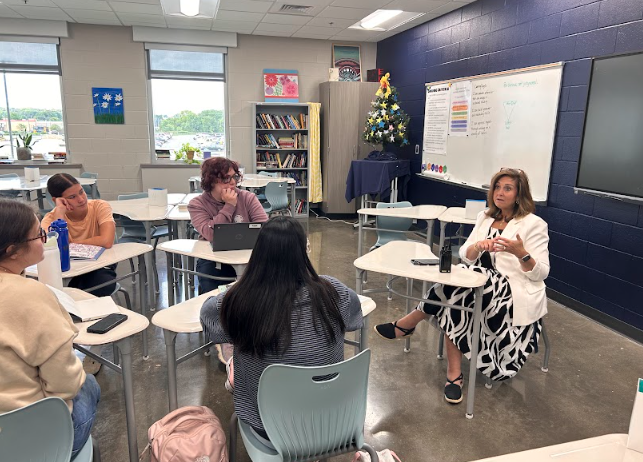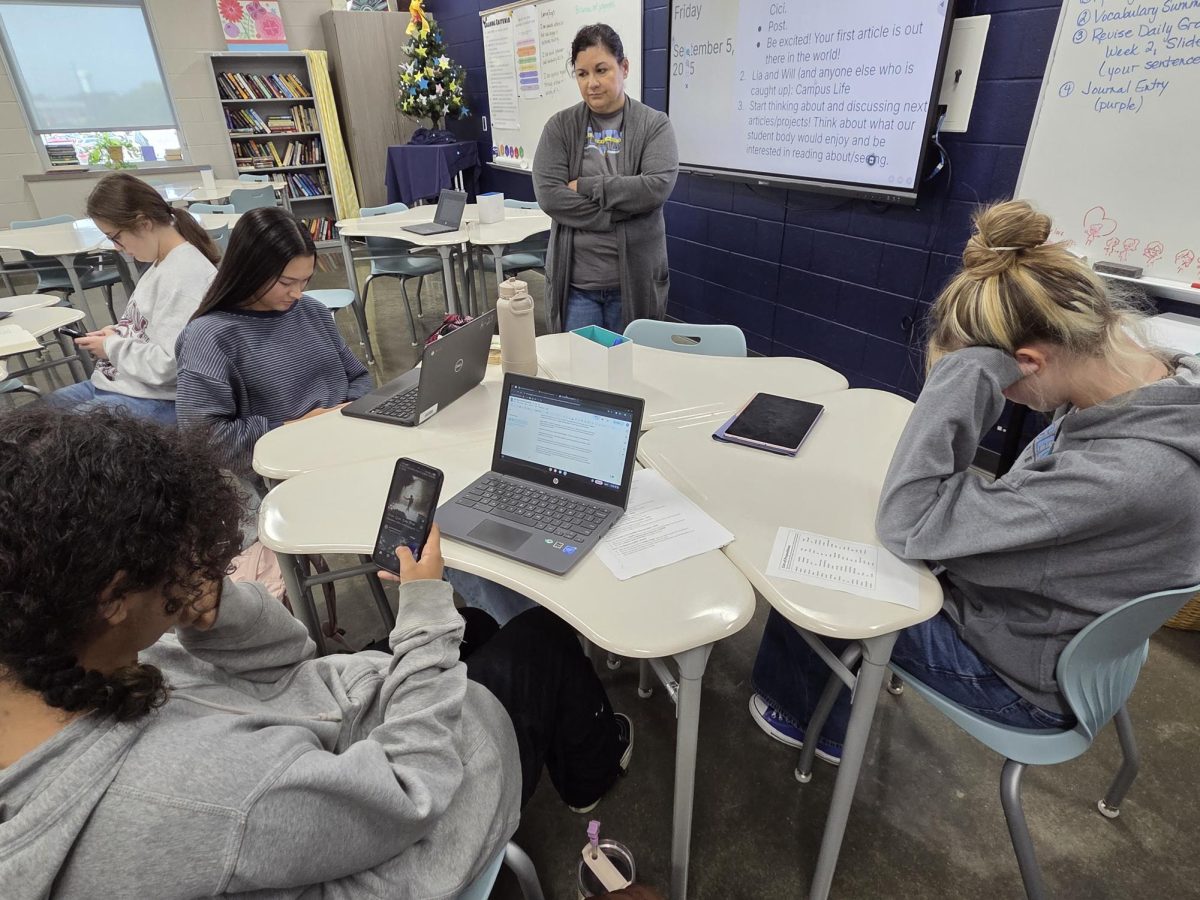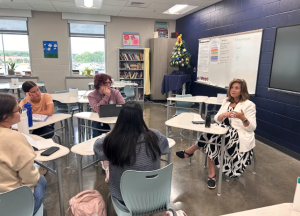SOS: Our Girls Need Help
A Recent Survey Reveals How Teenage Girls Have Had a Severe Decline in Their Mental Health
Sophomore Jayden Wyatt and junior Avery Prater embrace in a comforting hug.
March 13, 2023
On Feb. 13, The Center for Disease Control and Prevention released a report that suggests that there is a serious threat present harming teenage girls in America.
The report announced that teenage girls are “experiencing record high levels of violence, sadness, and suicide risk.”
In fact, “nearly 3 in 5 (57%) U.S. teen girls felt persistently sad or hopeless in 2021-double that of boys,” this presented a nearly 60% increase since 2011, the highest level reported in the past decade. While for teenage boys, the increase went up only from 21% to 29%.
The CDC analysis included data received from Youth Risk Behavior Survey, “Youth mental health has continued to worsen—with particularly stark increases in widespread reports of harmful experiences among teen girls,” YRBS said.
The analysis included the following startling statistics:
- 1 in 5 (18%) experienced sexual violence in the past year – up 20% since 2017, when the CDC began monitoring this issue.
- More than 1 in 10 (14%) had ever been forced to have sex – up 27% since 2019 and the first increase since the CDC began monitoring this issue.
- Nearly 1 in 3 (30%) seriously considered attempting suicide – up nearly 60% from the previous decade.
Teenage girls at Central Hardin have empathized with this data and even connect it to their personal lives.
From a recent survey completed by 62 girls from Central Hardin’s student body, 88.7% say that they saw a dramatic change in their mental health over the last year, and 66% of those people say that it was a negative shift. On top of that, 74.2% said that they have felt persistently sad or hopeless in the past year.
“I feel like I’m slowly falling apart like nothing that I do is good enough and no matter how hard I try to get better it never gets better it just keeps getting worse and worse and I can’t fix it,” sophomore Launa Sanders said.
Sanders is not the only one to feel this way. In fact, some even saw the negative change start to seep into other aspects of their life, including their athletic outlet. Sophomore Preslee Decker noted how during her fall sport, she noticed her mental and physical health decline and her environment wasn’t healthy for her.
Even more notable, many students recognized that the dramatic negative change in their mental health affected their perspective on school.
“I have also experienced a feeling of more frequent burn out this year than ones in the past with so many sports and activities I have on my plate,” freshman Sadie Hess voiced.
Like Hess, junior Lily Tingle shared her struggle with school: “Especially with being a junior, it feels like I have the weight of the world on my shoulders,” Tingle remarked.
Many students commented that things have gone “downhill” in terms of their academic performance, their workload is stress inducing, and they are feeling uncertain about the climate of school, one even said that the school environment cultivates a concerning amount of bullying.
“This school promotes so much bullying and negativity to the point that girls and some guys have been dealing with a lot of extra stress and even getting to severe lows resorting to cutting or even attempts at their life,” an anonymous freshman shared. “It’s too much stress for high schoolers especially ones in their first year or two or those about to come into freshman year in the fall.”
The correlation between school and a dramatic decline in positive mental health is no shocker. The CDC calls on schools directly to make the change to work towards improving mental health in teenage girls.
Debra Houry, M.D., M.P.H., and the CDC’s Chief Medical Officer and Deputy Director for Program and Science expressed how schools can play a vital role in structuring better mental health for teenagers according to the analysis published by the CDC.
“High school should be a time for trailblazing, not trauma. These data show our kids need far more support to cope, hope, and thrive,” Houry said. “Proven school prevention programs can offer teens a vital lifeline in these growing waves of trauma.”
The CDC recommends providing outlets such as safe and trusted adults who care about the well-being of their students, professionally trained individuals, and mentors to foster the mental health of students.
Providing students with critical and crucial knowledge surrounding mental health is also a vital factor recommended by the CDC. Equipping students with skills such as, “true sexual consent, managing emotions, and asking for what they need,” will aid in assisting with their mental health.
88.7% of the students who completed the Central Times survey also side with the urgency for schools to do more to help those struggling with their mental health.
“Have teachers be educated on mental health. Some will just assign loads and loads of work and don’t take into consideration that one might be struggling or going through family issues. School can totally add up and most teachers don’t realize that,” sophomore Harper Warrell suggested.
Junior Avery Prater noted that she would like to see the stigma around mental health fade away.
“Everyone is always worried that talking about their stance mentally could get them in trouble or sent away,” Prater said. “I would love to see the shift from the topic of mental struggles going to a conversation that has no fear of consequence.”
Likewise, junior Jenna Burba wants to see a level of trust built between staff and students.
“People are scared to talk to the people around the school because they think they will tell their parents without their permission.”
Many students shared similar thoughts about having mental health professionals and/or therapists in the school building to help struggling students, Individuals that are fully equipped to assist with mental health related issues and that strictly handle those situations.
Regardless of personal experiences regarding mental health, attention needs to be brought to those that are struggling. Teenagers are struggling, girls are struggling.
This is a moment of urgency.
If you or someone you know is dealing with mental health, reach out to a trusted individual for help and guidance. You are never alone.
The Central Hardin Youth Services Center, located upstairs in room 401, has resources readily available to assist those struggling. You can also contact the YSC staff via email: Brendan Chaney ([email protected]) and/or Mandy Sanders ([email protected])
The Suicide and Crisis Lifeline is free, confidential, and available at all times. Call or text 988 to connect with a trained professional to discuss yourself or a loved one dealing with a crisis.

